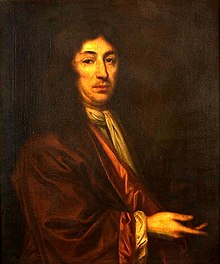Mohegan Indians v. Connecticut
Mohegan Indians v. Connecticut (1705–1773) was the first indigenous land rights litigation in history in a common law jurisdiction.
[1] James Youngblood Henderson, professor of law, calls the case "the first major legal test of indigenous tenure.
In 1994 the tribe gained federal recognition by the Department of Interior; in addition, that year Congress passed the Mohegan Nation (Connecticut) Land Claim Settlement Act, which authorized the US to take 800 acres of land into trust for the tribe for use as its reservation, and allowed it to have gambling operations on the property.
English colonists arrived on the coast of Connecticut in the 1630s, coming into contact with the Mohegan people, who had been part of the Pequot.
[4] In 1704, the Masons petitioned the Crown, on behalf of the Mohegan, arguing that the land grants to colonists violated the treaties with the tribe.
It referred the dispute to Governor Joseph Dudley and the council of Massachusetts, with a Commission empowering them to form a tribunal.
[4] The commission's ruling was to be legally binding without subsequent approval by the Crown, but the right of appeal to the Privy Council was reserved.
Morgan had been a captain in King Philip's War, lived in Preston, Connecticut, and had been a delegate to the colonial legislature.
Thomas Leffingwell was eighty years old, a long time friend of Mohegan Chief Uncas, a co-founder of Norwich, Connecticut, and a longtime member of the colonial legislature.
[5] Walters argues that the Mohegan must have been considered a "component of the Empire" in order for the Crown to have original jurisdiction over a dispute between them and Connecticut.
Smith provides a detailed history of the legal proceedings of the case, but only sporadically includes quotes from the decision.
[7][8][9][10] In 1995, Robert N. Clinton described it as "the first major eighteenth century challenge to local colonial control of relations with Indian tribes," and "the greatest cause ever heard at the Council Board.
"[11] Some commentators have suggested that Mogehan Indians demonstrated that British law recognized indigenous tribal nations as having rights of sovereignty.
[4] Walters agrees that, if true, that interpretation of the decision would "revolutionize the traditional understanding of Aboriginal legal status in Canada.
In his ruling of 1980, Judge Blumenfeld rejected the state's motion to dismiss, holding that the 1790 Indian Non-intercourse Act applied to the entire country, including the lands in question.
[16] Finally, Blumenfeld struck the state's defense of res judicata based on the 18th-century lawsuit, holding—inter alia—that "the 1743 judgment itself recognizes the Indians' possessory right to the lands at issue in this action.


